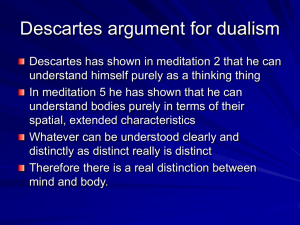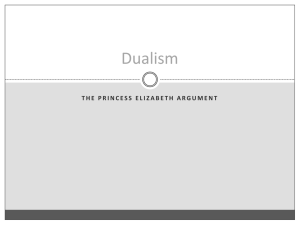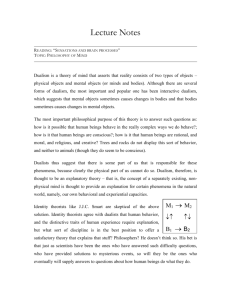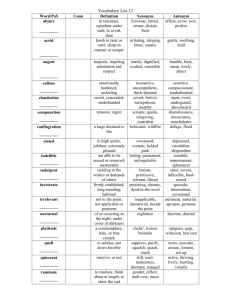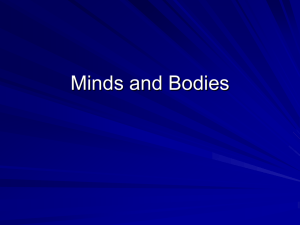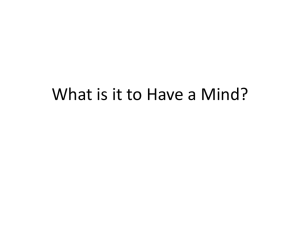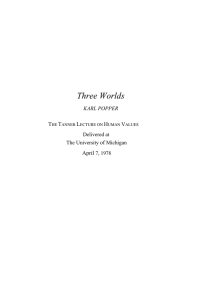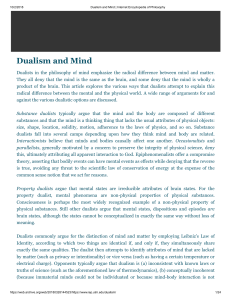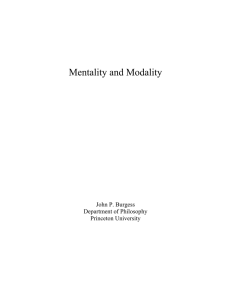Mind
advertisement
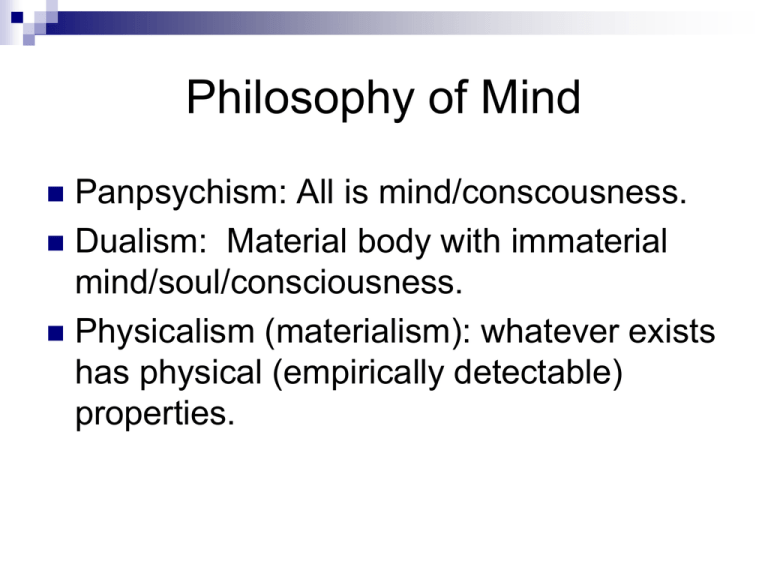
Philosophy of Mind Panpsychism: All is mind/conscousness. Dualism: Material body with immaterial mind/soul/consciousness. Physicalism (materialism): whatever exists has physical (empirically detectable) properties. Problems for Dualism Causal interaction problem: How does an immaterial substance interact with the material body? All known causal connections involve material interaction. Neural dependence of mental phenomena: Why do drugs and brain damage impair mental function if the mind is a distinct immaterial entity? Difficulties for Dualists Explanatory impotence of dualism: Neuro-science has uncovered vast amounts of information about brain functioning and its correlations with mental states. What can the dualist tell us about spiritual substance and its relation to behavior? Coherence with evolutionary theory: A physicalist view of mind explains the development of higher mental abilities in terms of the evolution of increasingly complex brain structures; how will the dualist account for this correlation? Zombies and Mutants Zombies look just like us, their brains are just like ours, they behave exactly as we do, but they are not conscious. Mutants are also just like us, respond to external stimuli as we do; they are conscious, but their subjective experiences are different. They react to painful stimuli as we do, but instead of a pain sensation they have the experience hearing Pablo Ramirez yelling “Golazo.” A problematic consequence of dualist metaphysics. If mind and matter are thought of in the Cartesian way, then there would be wide-open possibilities of a bizarre kind. So, since this is intolerable we should rethink the conception of how things are. A better conception of mind and its place in nature should foreclose these possibilities. (Simon Blackburn) Mutant or Zombie? Physicalisms Behaviorism (Ryle): Mental states reduce to patterns of behavior. Identity theory: Mental states = brain states. Functionalism: Mental states reduce to a set of causal relations between a perceiver, environment, other mental states, and behavior. Eliminative materialism Our current vocabulary for referring to mental states (belief, desire, etc.) is the product of folk psychology, not science. Hence, these terms will be eliminated and replaced by descriptions of neurophysiology. Paul Churchland
